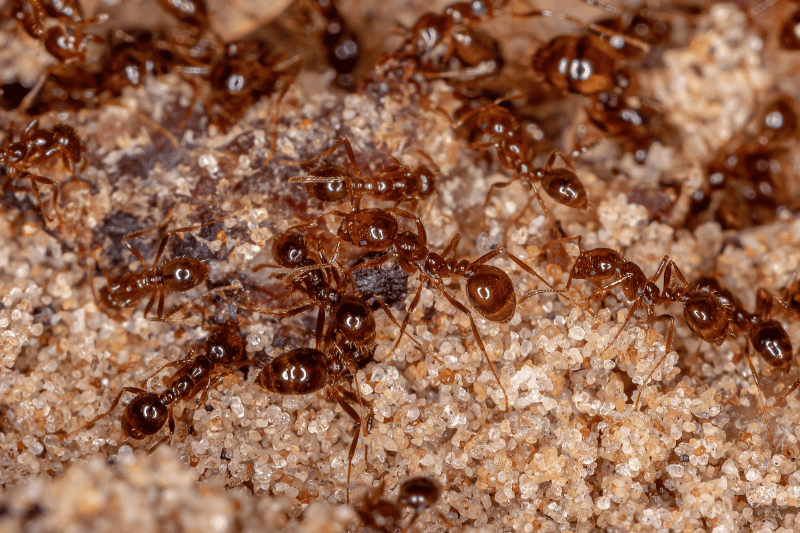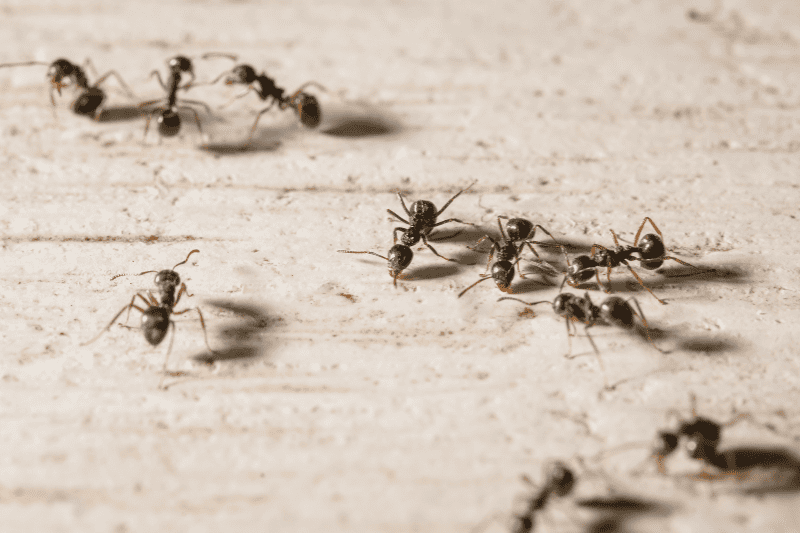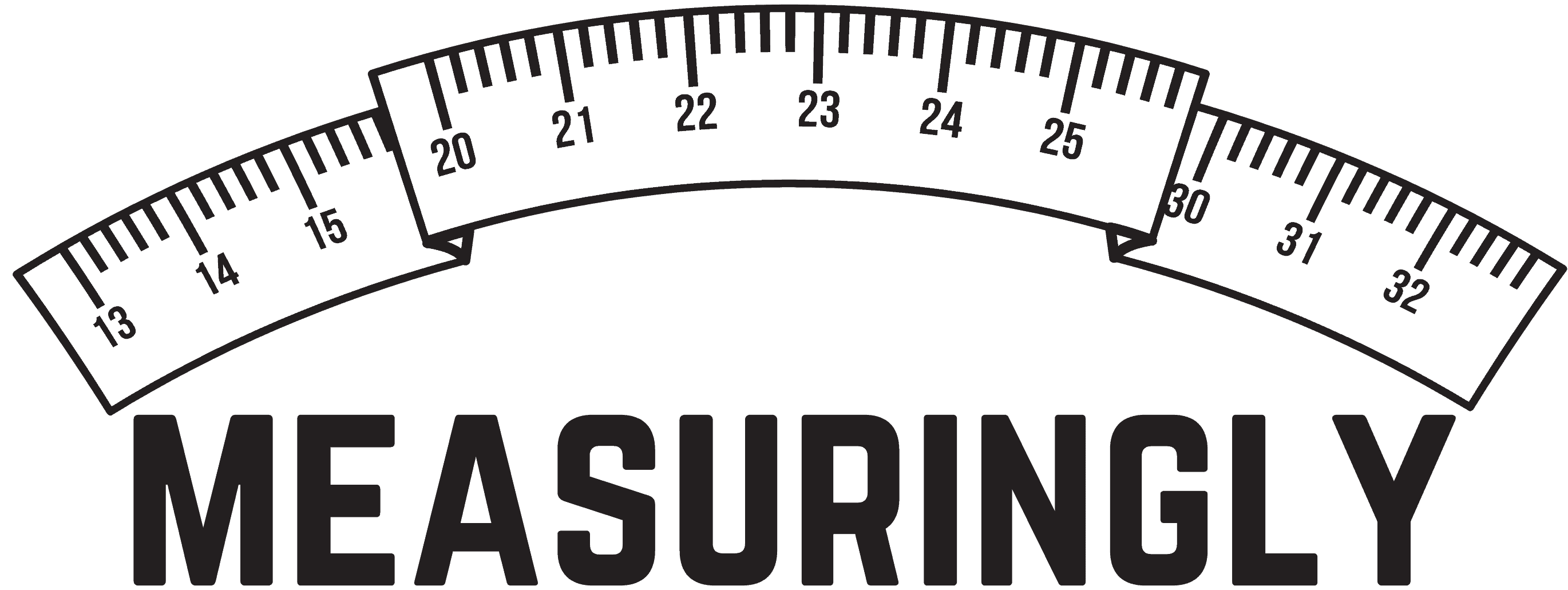Ants are fascinating creatures, with their complex social structures and incredible ability to carry items much heavier than their own body weight. But have you ever wondered how much an ant weighs?
With thousands of ant species in the world, the weight of an individual ant can vary quite a bit. To satisfy your curiosity, let’s explore the fascinating world of ants and discover the factors that influence their weight.
We’ll consider various species, sizes, and environments to provide an accurate understanding of just how much weight an ant can carry.
Read: How Much Does a Rabbit Weigh? Quick Facts and Figures
Worker ants are the ones you’re most likely to see, and they weigh around 1 to 5 milligrams. Queen ants can weigh anywhere from 90 to 200 milligrams, depending on the species. Male ants weight ranges from 5 to 45 milligrams, based on the species.
Measuringly.com
How Much Does an Ant Weigh?
You might be curious to know how much these tiny creatures weigh when you come across ants.
Well, the answer varies depending on the species of ant. There are more than 12,000 known species of ants in the world, each with a distinct size and weight. Let’s take a look at some examples to give you a better idea:
Worker Ants

These are the ones you’re most likely to see, and they weigh around 1 to 5 milligrams. Worker ants from different species can vary in size, so their weights also differ.
For instance, workers of the tiny Pharaoh ant weigh about 1 milligram, while those of the larger Carpenter ant can weigh up to 5 milligrams.
Queen Ants

The queen of the colony tends to be larger than the workers, and thus, they weigh more. Queen ants can weigh anywhere from 90 to 200 milligrams, depending on the species.
For example, the Western Harvester queen weighs around 90 milligrams, while the queen of the Carpenter ant has a whopping 200-milligram body mass.
Male Ants

Males are often smaller than the queens but larger than the worker ants. Their weight ranges from 5 to 45 milligrams, based on the species.
A male Carpenter ant, for example, weighs around 25 milligrams.
To put these weights into perspective, here’s a quick comparison with an everyday item:
| Ant Type | Weight | Equivalent Item |
|---|---|---|
| Worker Ant | 1-5 mg | A grain of sand |
| Queen Ant | 90-200 mg | A raisin |
| Male Ant | 5-45 mg | A grain of rice |
So, next time you encounter ants, you’ll better understand how much these fascinating little insects weigh.
Remember, these are just rough estimates since each species has its unique characteristics, but they provide a general understanding of ant weights.
Factors Determining Ant Weight
Species

There are over 12,000 known species of ants, and their weight varies considerably, depending mainly on the species.
Some of the smallest ants weigh only around 1 milligram, while larger species, like the carpenter ant, can reach up to 12 milligrams.
Diet

Ants are omnivores and consume various food sources, from plant material to other small insects. Their diet is another factor influencing weight.
An ample food supply will often cause ants to grow larger and heavier.
For example, ants living near garbage piles or food storage areas may weigh more than their counterparts living without access to plentiful food.
Environment

The environment that ants inhabit also plays a role in determining their weight. Factors such as humidity, temperature, and the presence of natural predators can influence the average weight of a colony’s ants.
In some cases, more challenging environments might lead to smaller, lighter ants that can move quicker and adapt better to their surroundings.
Age

Similar to other living organisms, ants’ weight changes as they age.
Workers, male, and queen ants grow heavier with time due to regular molting.
Molting is a process in which ants shed their old exoskeleton and replace it with a new one to support their increasing body size.
As they grow older, ants in the colony usually become heavier, with the queen ant often being the largest and heaviest member.
Weight Comparison
Ant vs Grain of Rice

When you think of an ant, you might imagine it carrying a grain of rice. In fact, ants can lift and carry 20 to 50 times their body weight!
A single grain of rice weighs around 20 to 30 milligrams. So, while they may be small, ants are strong for their size.
Ant vs. Sugar Cube

Now, let’s compare the weight of an ant to a sugar cube. A standard sugar cube weighs about 2.3 grams, making it significantly heavier than the weight of an ant.
So although ants can lift impressive amounts relative to their size, a sugar cube would be a challenging load for a single ant to carry.
However, teamwork is one of their strengths, and a group of ants may work together to transport objects much heavier than a single ant could manage alone.
Ant vs Penny

The weight disparity becomes even more pronounced when we compare an ant to a penny. A penny weighs approximately 2.5 grams – far more than an ant or even a sugar cube.
To put this into perspective, it would be like trying to lift a car. An ant would likely struggle to carry a penny even with the help of its fellow ants.
But don’t underestimate their persistence! Ants are known for their determination and resourcefulness when faced with obstacles.
In summary, ants may be tiny, but their ability to carry objects many times their own weight is impressive. As you’ve seen through these comparisons, their strength is truly remarkable when put into perspective.
Methods to Measure Ant Weight
To measure the weight of an ant, you can use a variety of methods:
High-Precision Scale
First, you can use a high-precision scale. These scales are capable of measuring very small weights accurately and can be found online or in specialty stores.
To weigh an ant using a precision scale, carefully place the ant on the scale and note the reading.
Homemade or Store-bought Ant Balance
Homemade or store-bought ant balance is a device that consists of a lightweight platform and a sensitive counterbalance.
Place your ant on the platform, and then adjust the counterbalance until the platform is level.
You’ll need a known weight or a precise scale to calibrate your ant balance beforehand.
This method can be more challenging, but it’s a fun way to explore the world of ants!
Read: How Much Does a Sock Weigh? (Quick Answer)
Archimedes’ Principle
If you’re interested in a more scientific method, you can also use Archimedes’ principle to measure the weight of an ant. Here’s the basic procedure:
- Fill a small container with water and note the water level.
- Gently submerge the ant in the water, being careful not to harm it.
- Observe the change in the water level.
- Use the formula weight = volume x density x gravity to calculate the ant’s weight.
Remember that this method requires more calculations and knowledge of the ant’s body density. Additionally, it may be more time-consuming and less accurate than other methods.
To sum up, you have several options for measuring the weight of ants. Whether you choose the precision scale, the ant balance, or Archimedes’ principle, always handle the ants carefully and patiently.
Frequently Asked Questions
What is the Weight of an Ant in Grams?
Ants come in various sizes and species, meaning an ant’s weight can differ quite significantly. Generally, an ant can weigh between 1 to 5 milligrams. To put that into perspective, you can think of an ant as weighing less than a tiny grain of rice.
Can an Ant Really Carry 1000 Times its Weight?
Yes, ants are known for their impressive strength relative to their size. Some species of ants carry up to 1000 times their body weight. However, it’s important to note that this ability can vary among different ant species.
How Does the Weight of Ants Compare to Humans?
Comparing the weight of ants to humans might surprise you. Even though ants are tiny, their combined weight can be quite significant. Scientists estimate that the total weight of all ants on Earth is around the same as that of the human population. This demonstrates the sheer number of ants that exist and their substantial impact on ecosystems.
What is the Weight of a Million Ants?
To estimate the weight of a million ants, let’s assume the average weight of an ant is around 3 milligrams. Multiplying that by a million would give us 3,000,000 milligrams, or 3 kilograms. This means that a million ants would weigh about the same as a small household cat.







